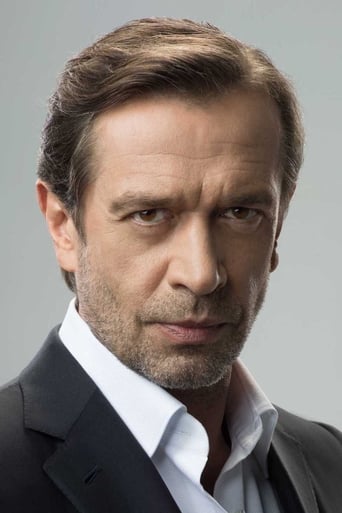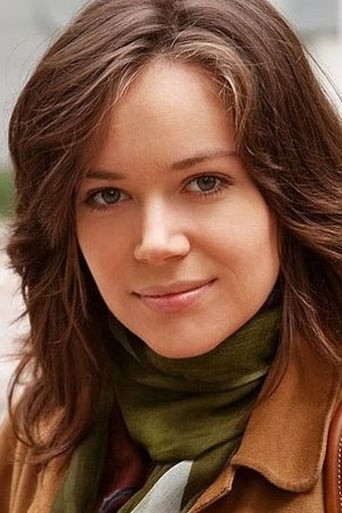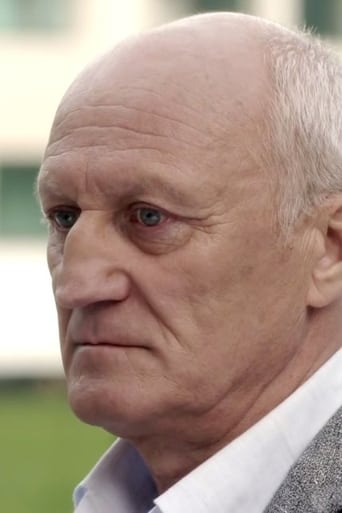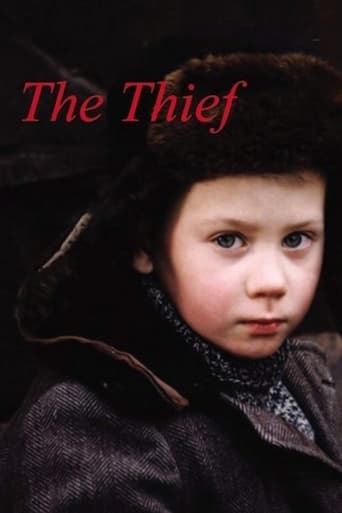
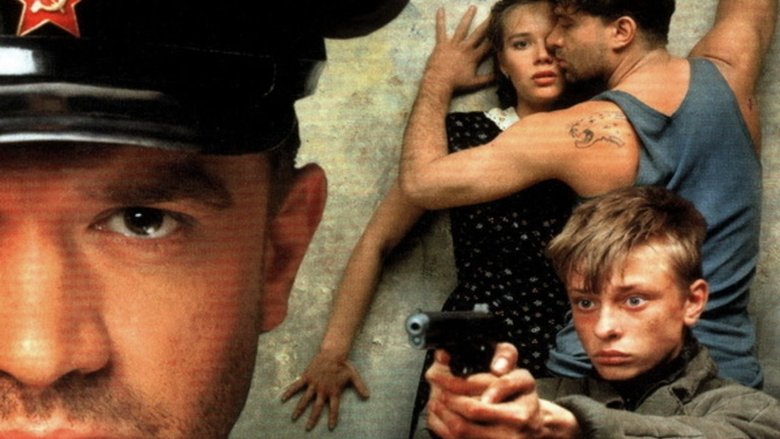
The Thief (1998)
Katya and her 6-year-old son Sanya, who, in 1952, meet a veteran Soviet officer named Tolyan. Katya falls in love with Tolyan, who turns out to be a small time criminal, but who also becomes a father figure to Sanya ...
Watch Trailer
Cast


Reviews
Chukhrai's The Thief (1997) has superficially a lot in common with the films of the Soviet thaw period. It follows the impressionable childhood of a young boy, left fatherless by the war, as he and his mother adjust to living with a new father figure. However, thematically it shares much more with the dark (much of the film actually takes place in darkness or near-darkness), violent, and morally ambiguous films of the late- and post-Soviet eras. The Thief is almost the anti-"Moscow does not believe in tears", depicting a lonely single mother who finds in a charming stranger not a perfect mate and father figure, but an aggressive and morally baseless opportunist who, upon a test of faith, reveals none of the love or loyalty of which he seemed to be capable. Moral uncertainty is a constant theme; despite the 1940s setting, The Thief has all of the loss, disappointment, and listlessness of the postwar films, but none of the hope and ideological faith. The story poses many questions – whether immorality is acceptable in the preservation of a family, whether a poor father figure is better than none, whether violence is preferable to weakness – and answers none of them. Even a murder at the end that might have been redemptive or cathartic is emotionally blank: the main character bleakly narrates, "nothing existed, nothing, nothing, nothing." However, The Thief has little of the crushing psychological brutality of post-war cinema – the film is never dull or trudging, and even contains some of the excitement and humor of western crime films. The film really offers nothing in terms of morality or judgment. Chukhrai does not even indulge in the classic trope of the protective mother and the abusive father. We are faced instead with a 1990s story in a 1940s setting: a boy lives his formative years in an amoral world, loving those he is with, and ending up with nothing but loneliness and ambiguity.
I followed up Kolja with another film about a young boy; one that has a sad ending also, but for a different reason.Writer/Director Pavel Chukhraj gives us a stark picture of Russia after the war. A place of poverty and desperation. Into that picture comes Tolyan (Vladimir Mashkov), ostensibly a soldier, and maybe he was at one time, but now a thief.He steals to survive, whether it is possessions he can sell at the market, or the hearts of a woman (Yekaterina Rednikova) and her young son (Misha Philipchuk), who misses his father.He is clever, that Tolyan; unfortunately it catches up with him, and then his true colors come out. Having lost everyone that meant anything to him, and now, Tolyan, the young boy responds in a fashion that is predictable, but heartbreaking.It is stark and methodical, but this Oscar-nominated film is worth watch more than once.
"Vor" will undoubtedly become a classic of Russian cinema in a few years. First, this was both written and directed by the great Russian filmmaker Pavel Chukhrai! It's a tender pseudo-autobiographical account of life during the last years in Stalinist USSR. An interesting theme in this movie is that of the "father-figure"...and Stalin as a "father-figure" to the Soviet Union. You don't necessarily have to be familiar with the political context of the film, but it definitely makes it all the more poignant and heart-breaking if you are. Vladi Mashkov is superb as the charming "soldier" who, not accidentally, has Comrade Stalin tattooed on his chest. Whether Toljian symbolizes a strong-yet-corrupt Stalin and whether Katja and Sasha represent the disenchanted Russian populus, that's up to you to decide. But see it!Look at "Vor" from the allegorical and political level and it's strikingly true. Look at "Vor" from the emotional and tragic level and it's strikingly true. This movie is deep, painful, and of course riddled with truth. That's why it's so powerful! Of course, the acting and direction show this truth off so vividly. I have to say, once again, that Mashkov proves to be an actor of amazing caliber, expression, and beauty. Dasvidania ;-)
This film takes place in an environment seldom depicted in movies: The Soviet Union during post-war stalinism. And I am so happy that this is made by russians!! This in itself renders it an epic value, but it has dramatic qualities as well. It is very emotional (it might make you cry) as well as extremely funny (it might make you laugh). Finally, it might also be seen as a poem about mother russia that was abused, the people that were betrayed, and the betrayer (stalinism).


